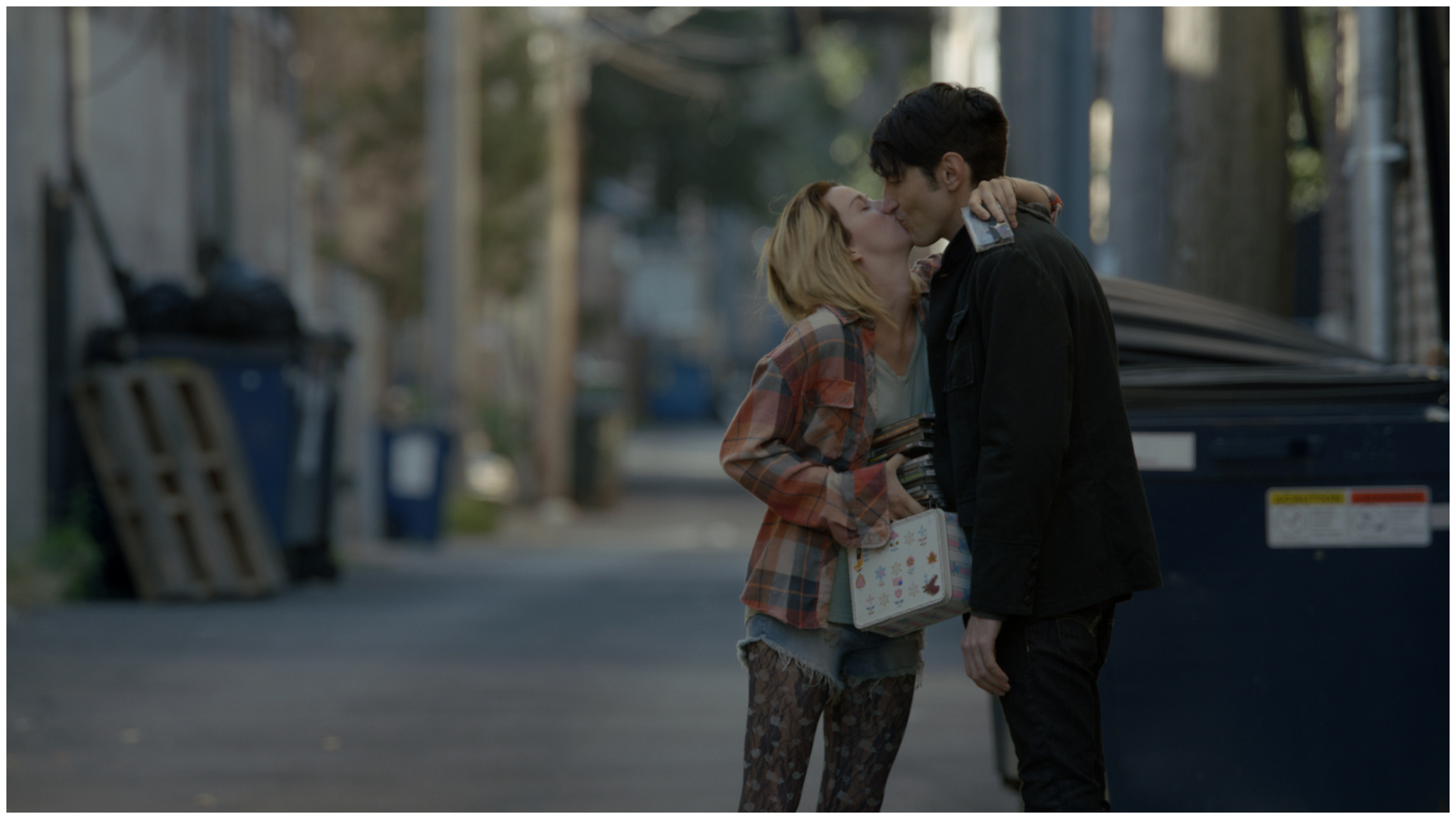Opening ThisWeek
Animals
RUns Fri., May 15–Thurs., May 21 at Grand Illusion. Not rated. 90 minutes.
He looks like a junkie, she doesn’t; but maybe that’s the point. Animals seeks to humanize the struggle of two lovers in the throes of addiction by depicting them as ordinary people who fell through the cracks. They drive an Oldsmobile, they go to the zoo, and every so often they run a scam or steal CDs and buy heroin with the proceeds. We don’t witness the preceding days of wine and roses, since when we meet them, Jude (David Dastmalchian) and Bobbie (Kim Shaw) are already living on the street—in the Olds, actually—and shooting up in diner bathrooms. But they speak of their respectable middle-class backgrounds and display enough humor to suggest they weren’t born into this grind.
Addiction dramas tend to unfold along formulaic lines, and Animals is no exception. It does have grit, and it feels rooted in crummy details that lend authenticity. (The film’s publicity discreetly suggests that screenwriter Dastmalchian drew upon his own experiences.) Director Collin Schiffli takes a fittingly intimate approach—the film isn’t artful, in the way of Gus Van Sant’s superb Drugstore Cowboy, but Schiffli does get something haunting going in the vacant Chicago streets and the rapport of the two lead performers. The only other notable actor is John Heard, whose kindly night watchman reminds us that his volcanic performance in Cutter’s Way (1981) really was a lifetime ago. Less convincing is the movie’s attempt at paralleling the images of zoo animals with the bestial state inhabited by Jude and Bobbie during their time on the streets.
This kind of movie can boost the fortunes of little-known actors, and it should do that for Dastmalchian and Shaw. Her girl-next-door appearance suits the film’s everyday horror, and she has a great dead-eyed moment when Bobbie suggests that Jude’s best chance of stealing a woman’s purse is to threaten the unfortunate lady’s baby. Dastmalchian, whose ghostly appearance worked well as a Joker henchman in The Dark Knight, is freakishly thin and ghoul-eyed; he could play a 19th-century grave-robber, or maybe the Babadook. Throughout the film he wears an expression of dazed disbelief, just a beat or two behind the action. Whether shooting up in the Oldsmobile or mounting a staircase to score from an unfamiliar drug peddler, he looks as though he can’t understand—or remember—exactly how he got here. Robert Horton
Heaven Adores You
RUns Fri., May 15–Tues., May 26 at Northwest Film Forum. Not rated. 104 minutes.
Near the end of Nickolas Dylan Rossi’s documentary about Elliott Smith, the late artist’s former collaborator and good friend Sean Croghan offers a hope: “Maybe we can just get past the drama and start to focus on what he created.”
It’s a coda that affirms the artistry of Smith, the downcast balladeer beloved by his fans for raw, emotional lyricism buoyed by an otherworldly sense of melody (made famous for his Oscar-nominated song “Miss Misery” from Good Will Hunting). The drama to which Croghan refers is both the songwriter’s untimely 2003 death at age 34—a suicide by most accounts—and the struggles with mental illness and drug addiction that preceded it. And while Rossi does touch on the darkness that swirled around Smith, Heaven Adores You is eager—sometimes too eager—to move on to the next album, the next show.
It’s a very different approach than 2009’s doc Searching for Elliott Smith, in which director Gil Reyes delved deep into that darkness. Smith’s family wasn’t on board with that effort, so none of his music was included. And, let’s be honest, a Smith documentary without those cascading finger-picked melodies is a tough sell. However, the same can be said of a film that doesn’t delve into the darkness that fed Smith’s art.
His family evidently cooperated this time, so fans will enjoy this doc for the music alone. And it’s not just the hits here. Before Rossi gets to “Waltz #2” and “Say Yes,” he traverses the efforts of a younger Smith, then living in Dallas and going by his given name of Steve. There is one of his first songs, “Outward Bound,” then some deep cuts from Smith’s earliest bands—Stranger Than Fiction, Harum Scarum—and his successful Portland grunge outfit Heatmiser.
Between songs, Rossi traces Smith’s life through his discography, using all of the Heatmiser and solo albums as signposts. A montage of archival imagery and modern-day street scenes from Smith’s three artistic homes (Portland, New York, Los Angeles) provide visual cues, while old interviews with the plainspoken artist are, somewhat eerily, interwoven with commentary from nearly 30 close friends and colleagues, as well as his sister.
The stories are entertaining, sometimes funny, often enlightening, and at times moving. But the darkness, which clearly informed Smith’s art and made the 2013 biography Torment Saint feel so complete, is held at bay. There’s discussion of Elliott’s strained relationship with his stepfather, but no exploration of Smith’s claims of abuse. There’s a passing aside about his difficulties at Hampshire College, but nothing on the singer’s struggles with gender and sexuality. And when Smith’s death finally approaches, the screen goes dark—no talk of the pain and paranoia that filled his final days, no mention of his relationship with Jennifer Chiba, the girlfriend who last saw Smith alive.
Instead we are given Croghan’s wish, and an un- easy feeling of fulfillment. Mark Baumgarten
E
film@seattleweekly.com




